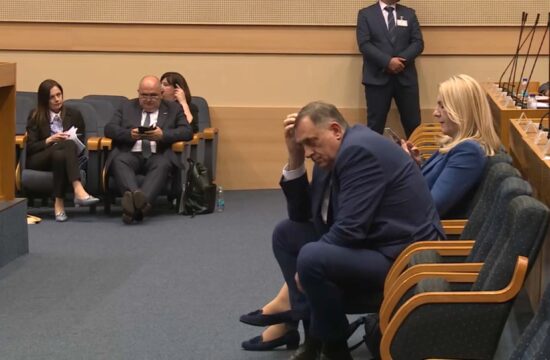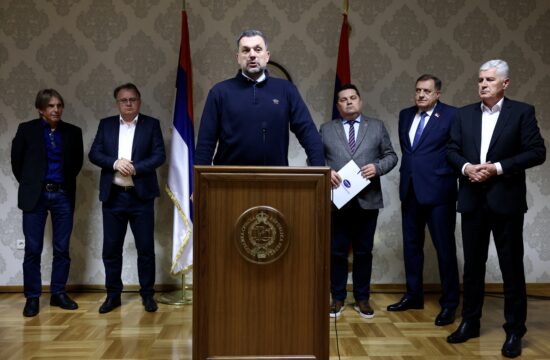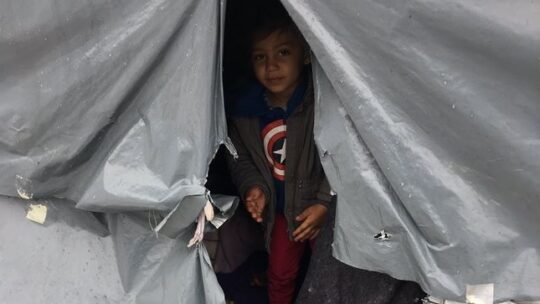Representatives of three main religious communities in Bosnia and Herzegovina agreed that religious communities were not the ones who waged war in this country but they allowed being dragged into that war.
Speaking for N1's ‘Pressing’, Head of the Oratory Department of the Islamic Community of Bosnia and Herzegovina, Meho Sljivo, said that peoples here did not know each other well enough.
“If we conducted a survey in Sarajevo, Zagreb or anywhere else and if we asked Muslims what they know about their neighbours, we would certainly see disappointing results. Our experience of that inter-religious dialogue can surely be precious also for larger communities in the region and broader,” Sljivo said.
Abbot of the Orthodox Monastery of Zitomislic, Danilo Pavlovic, deems that peoples on these territories have the same mentality, speak the same language and perfectly understand each other.
“Our mentalities are regional, they are not religious and then as a paradox to all that we have this mistrust and misunderstanding, as well as the ruling stereotypes,” Pavlovic noted.
Professor at the Franciscan Theological Faculty in Sarajevo, Friar Marinko Pejic, agree that religious communities are not the ones who waged the war, but they allowed to be instrumentalised by different sides.
“…and this is liability of all religious communities and we all have to somehow humbly admit that. Unfortunately, all our churches and religious communities have that possibility and negative potential to be negatively used in these conflicts and intolerance. One should always keep that in mind. I think that dialogue should go further among people. We must mutually talk a lot more,” underlined Pejic. According to him, nationalism that is linked to religion did not exist before and it was something that is “a disease of our time”.
Asked why is the religion abused and why people use the religion for their crimes, Pejic replied it was like that because “certain representatives of religious communities often benefit from that”.
Answering to the remark that certain religious leaders were often recommending to people who would they vote for in elections, Sljivo said he was not sure if anyone from the Islamic Community directly advocated for any party and, if there was such case, it was of “incidental nature”. According to him, imams were never allowed to do something like that.
Pavlovic resolutely dismissed a possibility of a believer being a nationalist, chauvinist or fascist at the same time.
“Being a nationalist in positive sense, when you are fond of your nation, which was given by God and we did not choose it, that is completely legitimate, but nationalism in negative sense is opposite to the Gospel,” he underlined.
Sljivo agreed that all this was contradictory to all fundamental values of religions, and Pejić added that nationalism was anomaly of this era and it was a serious negation of religion.
Speaking about coexistence and role of the religious communities in Bosnia, Sljivo noted that those who are good are always silent, while those who are bad are always heard better. Pavlović is of opinion that rhetoric has significantly changed over the past 15 years.
“Divisions and insisting on differences, returning backwards is something that really worries. We, as religious officials, are invited not to accept that kind of rhetoric. It leaves huge consequences. People are more and more in fear of what may happen,” Pavlovic added.
Sljivo deems that ordinary people are sort of disappointed and that “we failed to build up a democratic system where a criticism voice would be heard enough in public”.
According to Pejic, citizens should have more trust in all institutions of their respective countries, not only in religious communities.
“Religious communities have positive potential, but sometimes negative, too. It proved to be true many times. Religious communities can have a very negative influence in society. We moved further from real lives of our people, our communities, our problems. That is a basic problem of us, believers,” Pejic concluded.
Pavlovic emphasized the problem of relating religious affiliation with ethnic affiliation.
“Religion and ethnicity are not synonyms but completely opposing things. We are the ones who must explain that,” concluded Pavlovic.




